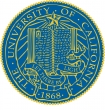
Yes, there's a flaw in the University of California Open Access (OA) mandate ["
Open Contradictions," Editorial,
The Daily Californian, 12 Aug 2013], and, yes, it has to do with the fact that U of C authors can opt out of compliance with the mandate.
But, no, the flaw is
not that the U of C policy
"allows [authors] to pick and choose where their research goes, thereby creating a divide between those who can afford access to a private academic journal and those who cannot."
That researchers retain their right to choose the most suitable journal for their research is not a flaw but a virtue of any OA mandate. (In the UK,
some OA mandates are trying to force authors to choose (and pay) to publish in journals based on the journal's OA policy instead of its quality (peer-review) standards, and that's very bad for both research and researchers -- and certainly unnecessary for OA.)
Nor does the U of C's mandate flaw have anything to do with whether the journal is "private" or "academic." Journals differ in their subject matter and quality standards; there are non-profit and for-profit journals at all quality levels, and that in turn has next to nothing to do with the journal's OA policy -- except that there is a new breed of junk journals that has lately been created on the cheap to provide pay-to-publish OA with low or no peer review quality standards. (See
Beall's list.)
There are two ways for authors to provide OA: (1) publish in an OA journal that makes the article OA, often for a fee (this is called "Gold OA") or (2) publish in any journal, but also deposit the final, peer-reviewed draft in the author's institutional repository -- U of C's is called
eScholarship -- and set access to the deposit as OA (this is called "Green OA") rather than Closed Access.
U of C has (wisely) mandated Green OA, not (like the UK) Gold OA. Hence journal choice is not at issue for U of C authors: They retain their right to choose to publish in the journal most suitable for their work. What is at issue is
whether and when they can make their article OA: Some journals' copyright agreements require authors to embargo OA for 6 months, 12 months, or even longer.
Now we come to the real flaw of the U of C policy:
If authors can opt out of the U of C mandate whenever a publisher embargoes OA, this nullifies the mandate and simply allows publishers to continue to determine whether and when articles are made OA.
But there is a very simple and natural solution that moots the publisher OA embargo: U of C needs to add an
immediate-deposit clause with no opt-out. This means all authors must deposit their peer-reviewed final drafts in eScholarship immediately upon acceptance for publication
whether or not the journal embargoes OA. But in addition, eScholarship should implement the automated
Request-Copy Button.
The repository's Button can email one copy of an embargoed deposit to an individual user on request: All it takes is one click from the user to request and one click from the author to fulfill the request. (This is not OA but "
Almost-OA.")
Authors retain journal choice, as well as the choice to provide individual access even for embargoed deposits -- but
they cannot opt out of immediate-deposit requirement itself: All articles, regardless of journal or journal policy, must be deposited in eScholarship immediately. The author can then either set access to the article as OA immediately, or can use the Button to provide "Almost-OA" during any publisher OA embargo.
Once the one-size-fits-all
immediate-deposit mandate (with no opt-out) is adopted by universities and research funders worldwide, not only will it close the "divide between those who can afford access... and those who cannot), but it will help hasten publisher OA embargoes toward their natural, inevitable and well-deserved deaths under the mounting worldwide pressure and demand for immediate OA -- by mandating that all articles must be immediately deposited in repositories and taking publishers out of the loop completely, insofar as mandate compliance is concerned.
None of this can happen if universities continue to allow publishers to decide whether and when authors deposit and provide access, by allowing opt-out from OA mandates.
 Yes, there's a flaw in the University of California Open Access (OA) mandate ["
Yes, there's a flaw in the University of California Open Access (OA) mandate ["

